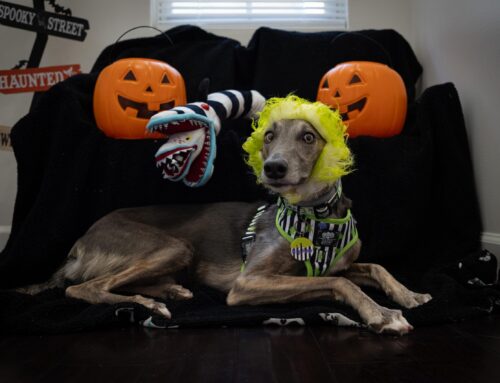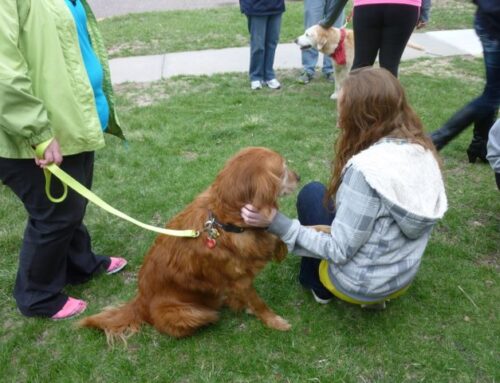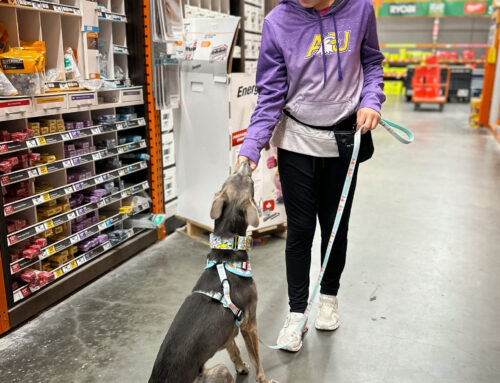When grieving families feel overwhelmed with emotions, many cannot cope with the loss of a family member or friend. Books have been written and support groups have been established to help people through this emotional and stressful part of life. Because of the therapy dogs’ skill set, they provide comfort and support to families and friends trying to manage their grief. For this reason, many funeral homes have employed are using therapy dogs to help families through funeral planning and the funeral service. In this article, we will explain the ways in which therapy dogs offer comfort to the bereaved, how they change the mood at funeral services, and why they are a vital part of the staff at many funeral homes.
How Do Therapy Dogs Help the Bereaved?
Although the National Funeral Directors Association (NFDA) does not currently keep a record of how many funeral homes in the United States employ utilize therapy dogs, funeral homes have seen an increase in the last few years. According to an NDFA survey, more than half of survey participants said they would either be somewhat, very or extremely interested in having a therapy dog at a funeral or memorial service. Therapy dogs allow those grieving to receive some comfort and relieve their stress and anxiety for a bit. This is especially true for grieving children who may not be comfortable talking about their feelings with adults. Therapy dogs give them someone to talk to and comfort them during an emotional and confusing time. Death is difficult enough for many adults to understand, let alone trying to make some sense of it for children.
How Can Therapy Dogs Help Alter the Mood at Funeral Services?
Not only do therapy dogs provide comfort, they also help improve overall mental and physical health. Petting a therapy dog increases serotonin and dopamine levels in our brain, which improves our mood by lowering stress, anxiety, and depression. Petting a therapy dog also lowers blood pressure and helps those who are feeling lonely, which could be the case for someone who lost a loved one.
Therapy dogs have the innate ability to sense a person’s emotional needs and act on them with unconditional love. Since those who are grieving may experience many of these emotions, therapy dogs make the perfect companion to help ease anxiety and confusion of death. It can simply be the therapy dog’s presence that distracts from stress and grief, even if for a moment or two. The power of a therapy dog to change the mood of a room is amazing, and funeral directors are discovering how to promote healthy healing in people who are grieving the death of a loved one.
According to Jessica Koth, public relations manager for the National Funeral Directors Association, “Therapy dogs have an amazing ability to put people at ease in a very emotional and difficult situation,” Jessica says. “I’ve heard of families coming into a funeral home to make arrangements for a loved one’s funeral, and when the therapy dog comes into the room, the mood changes and the family begins to open up and share their loved one’s story so the funeral director can help them understand how to plan a meaningful funeral. She adds that some funeral homes also use their therapy dogs in the grief support groups they offer. As the trend grows, Jessica says she sees more funeral homes choosing a certified or registered therapy animal rather than just any dog. “This offers the funeral home owner the assurance that the dog will be able to have positive interactions and provide comfort to a wide range of people,” she says.
Not surprisingly, the same skill set a therapy dog needs to offer comfort in natural or man-made disasters is offered in a funeral home setting. While the grief family and friends experience may be somewhat similar to that of disasters, therapy dogs sense the emotions, stress, and anxiety of the situation.
Are Therapy Dogs on Staff at Funeral Homes?
A growing number of funeral homes have therapy dogs as a part of their staff. Many funeral homes add photos and biographies of therapy dogs just as a human employee. The comfort that is provided by therapy dogs cannot be overstated.
Brian Merkle, president of Merkle Funeral Service in Monroe and Erie, Michigan, offers his observation:
A young mother died unexpectedly, leaving several children, including a teenaged daughter, behind. The daughter was sitting in our lobby, crying uncontrollably. Lola, our therapy dog, knew she needed comfort, so she climbed up on the couch and lay right next to the emotional daughter. The girl soon began stroking Lola’s soft coat and stopped crying. Lola helped ease her burden, if only for a moment.
Judd, the golden retriever, is such a big part of the staff at Armes-Hunt Funeral Home that he has his own profile page and Facebook page. He spent a year in obedience and therapy dog training before he began his mission comforting mourners. When Nancy Hall’s husband passed away last June, she requested Judd’s presence during the visitation and the funeral. “He sat right next to my feet, comforting me during the service,” Hall said. “It was a very hard time for me… I don’t know if I would have made it through those tough days without my furry friend.”
The use of grief therapy dogs in funeral homes is an extension of the services therapy dogs offer in the community. Adults and children, previously unable to openly discuss their losses, share their feelings with therapy dogs, who provide a calm, loving presence to those in grief. Words aren’t required; sometimes all it takes is a nuzzle from a wet nose to help people share their feelings and begin the healing process. Therapy dogs are quickly being recognized as a vital part of the services offered by funeral homes. To learn more about therapy dogs and the benefits they can provide grieving families, contact the Alliance of Therapy Dogs.






